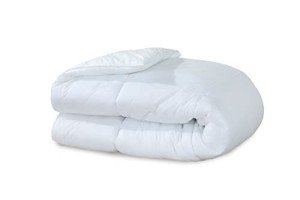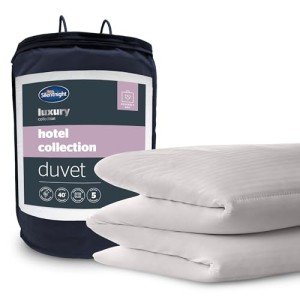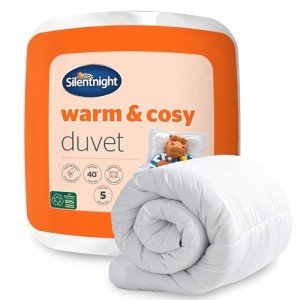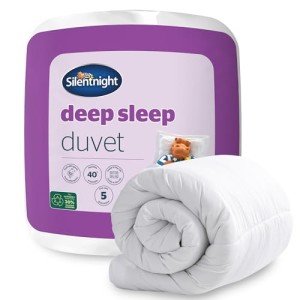When winter descends upon us and the temperature drops, nothing feels better than snuggling under a warm quilt. The market is filled with various options for bedding that promise warmth and comfort, but not all of them are suitable for everyone. For those who suffer from allergies, the quest for a cozy duvet that also provides allergy protection can be especially challenging. This guide delves into the features, benefits, and considerations of cozy anti-allergy single duvets, making them the ideal choice for winter warmth.
What is an Anti-Allergy Duvet?
An anti-allergy duvet is specifically designed to minimize the presence of allergens that can trigger respiratory issues or skin irritations in sensitive individuals. Typical allergens include dust mites, mold spores, and pet dander. Anti-allergy duvets are treated with hypoallergenic materials or possess characteristics that make it difficult for these allergens to thrive.
Key Features of Cozy Anti-Allergy Duvets
-
Material: Most anti-allergy duvets are filled with synthetic fibers such as polyester. These materials do not support the growth of dust mites and are often easier to clean than natural alternatives like down.
-
Breathability: High-quality anti-allergy duvets are designed to be breathable, ensuring that your body temperature remains regulated throughout the night, preventing overheating.
-
Weight Distribution: A well-constructed duvet should offer even weight distribution, which enhances the feeling of coziness and warmth.
-
Washable: Many anti-allergy duvets are machine washable, making it easy to maintain cleanliness and freshness.
-
Certification: Look for products that carry certifications from reputable allergy organizations, which can serve as reassurances of their effectiveness.
Benefits of Using an Anti-Allergy Duvet
-
Reduced Allergen Exposure: Anti-allergy duvets significantly reduce exposure to common allergens, providing relief for allergy sufferers.
-
Comfort: The cozy fabric and construction of these duvets ensure ultimate comfort, essential for a good night’s sleep.
-
Easier Maintenance: As mentioned earlier, these duvets are generally easier to clean than traditional options, enabling users to maintain a healthy sleeping environment easily.
-
Versatility: Suitable for all seasons, anti-allergy duvets can be used year-round, thanks to their designs that allow for temperature regulation.
-
Peace of Mind: Knowing that you are using a product designed to combat allergens brings a sense of comfort and peace, allowing for improved sleep quality.
Choosing the Right Cozy Anti-Allergy Duvet
With the plethora of options available, choosing the right anti-allergy duvet for winter can be daunting. Here are some factors to consider:
-
Weight and Warmth: Depending on personal preference, select a duvet with the right weight. A medium-weight duvet can offer sufficient warmth while still being breathable.
-
Size: For a single bed, make sure to choose a duvet that is appropriately sized. Duvets typically come in standard sizes such as 135 x 200 cm for a single bed.
-
Return Policy: Consider brands that offer a satisfaction guarantee or a flexible return policy to ensure you can return or exchange if it doesn’t meet your needs.
-
Price: Prices can range significantly. While it’s tempting to go for the cheapest option, it is vital to consider long-term benefits, durability, and effectiveness in combating allergens.
Frequently Asked Questions (FAQs)
Q1: Are anti-allergy duvets suitable for children?
A1: Yes, many anti-allergy duvets are safe for children and can provide them with a comfortable sleeping environment while minimizing allergen exposure.
Q2: How often should I wash my anti-allergy duvet?
A2: To keep it fresh and free from allergens, it is advisable to wash your duvet every three to six months, or more frequently if an allergy sufferer uses it.
Q3: Can I use an anti-allergy duvet in summer?
A3: Yes, many anti-allergy duvets are designed to be versatile and can be used in the summer months as well. Look for lighter options if you tend to overheat at night.
Q4: What kind of filling is best for an anti-allergy duvet?
A4: Synthetic fillings, such as hypoallergenic polyester, are often recommended over natural fillings like down, as they do not promote the growth of allergens.
A cozy anti-allergy single duvet not only provides warmth during the cold winter months but also offers a respite for those who are sensitive to allergens. With its specialized materials, easy maintenance, and multitude of options available on the market, it represents a practical solution to enjoying a good night’s sleep without the worry of allergic reactions. By understanding the key features and benefits and considering factors like weight and size, consumers can make informed decisions and ensure comfort, safety, and quality in their bedding choices. So, as winter approaches, consider investing in an anti-allergy duvet, and experience the comfort it brings.






